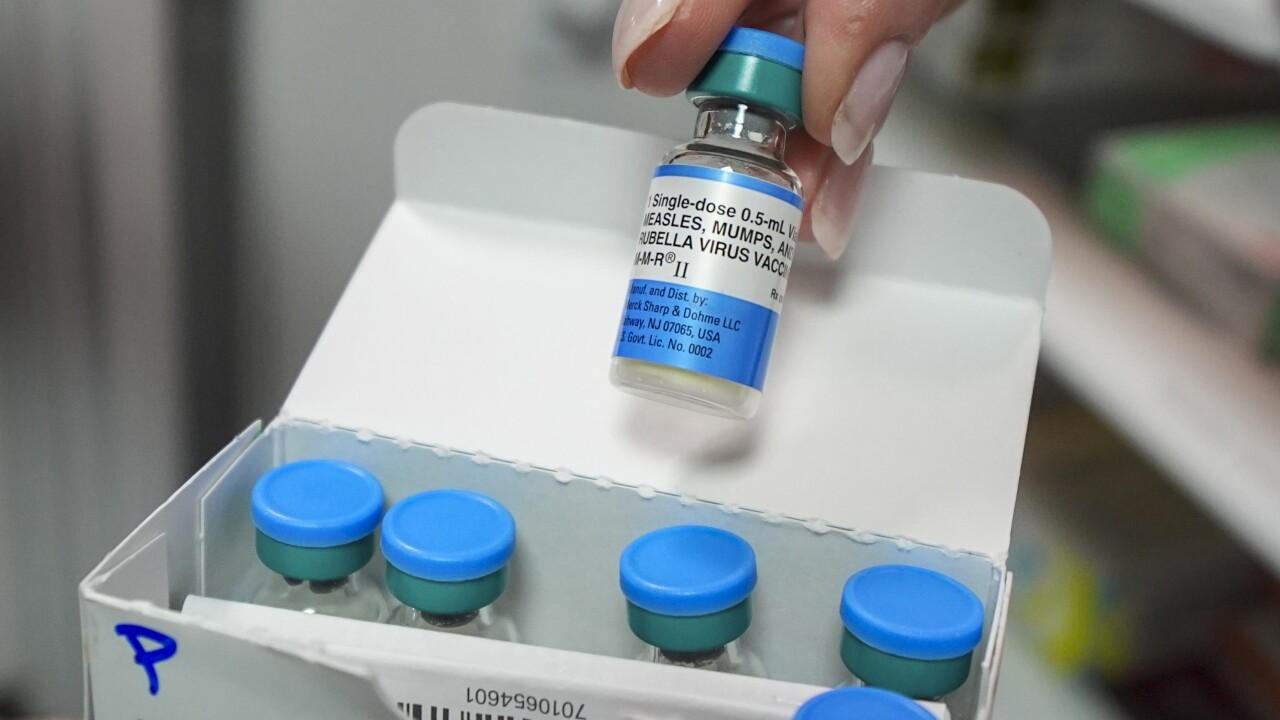With turmoil at the CDC, there are questions swirling about vaccines and who should get them. While some states are banding together to ensure Americans won't lose access, others are working to eliminate mandates that have been in place for decades.
California, Oregon, Washington and Hawaii are launching the West Coast Health Alliance to provide unified recommendations. The alliance says it will "safeguard scientific expertise" and the states will coordinate their health guidelines based on advice from national medical organizations.
Other state leaders are also making moves to protect vaccine access in the face of potential changes at the federal level.
Minnesota Gov. Tim Walz signed an order to ensure the COVID-19 vaccine remains available, and he ordered state health officials to be ready to protect access to other routine vaccines, if necessary.
New York Gov. Kathy Hochul signed a 30-day executive order making it easier for pharmacists to prescribe and provide the COVID-19 vaccine.
Ohio's Republican Governor Mike DeWine and his Health director are continuing to promote vaccines as safe and effective.
But Florida is going the other direction, and it became the first state to announce plans to end vaccine mandates in schools. A proposed rule change is underway to lift requirements for hepatitis B, chickenpox, and pneumococcal diseases, such as meningitis. That could go into effect in early December. Eliminating other requirements, like vaccines for measles, polio, diphtheria, and more, will require a change in state law.
While Health and Human Services Secretary Robert F. Kennedy Jr. has expressed skepticism over vaccine use, the man who appointed him to the role, President Donald Trump, offered his support for vaccinations.
RELATED STORY | Vaccine divide: States split from CDC, craft own rules amid political clash
Medical experts say the Florida surgeon general's announcement runs counter to decades of public health advice.
"He is representing the medical freedom movement, which is to say, I'm going to do what's best for my child. I don't care about how that affects somebody else, whereas in public health, you do care about the person next to you, and I think President Trump alluded to that," explained Dr. Paul Offit, the director of the Vaccine Education Center at Children's Hospital of Philadelphia.
On Capitol Hill last week, senators grilled Kennedy about the changes at the CDC and his view on vaccines.
"I understand some medicines harm people, some of them have risks, some of them have benefits that outweigh those risks for certain populations. And the same is true with vaccines, and we don't understand the risk profile," Kennedy said.
After that hearing in the Senate Finance Committee, President Trump said he likes that Kennedy is "different", but the next day, the president expressed caution about rolling back vaccine use.
"You have some vaccines that are so amazing, the polio vaccine I happen to think is amazing. A lot of people think that COVID is amazing, you know, there are many people that believe strongly in that, but you have some vaccines that are so incredible, and I think you have to be very careful when you say that some people don't have to be vaccinated," the president said.
On Sept. 18 and 19, the Advisory Committee on Immunization Practices will meet. It will be the second meeting since Kennedy fired the 17 previous members and hand-picked their replacements. The panel is scheduled to discuss vaccines for COVID-19, Hepatitis B, measles, mumps, rubella and chickenpox, and RSV.
If the advisory panel recommends any vaccine changes, those will need approval from the Centers for Disease Control director. The CDC is currently operating with an acting director, Jim O'Neill, who is also a deputy secretary for the Department of Health and Human Services. O'Neill does not have any training in medicine or health care.





